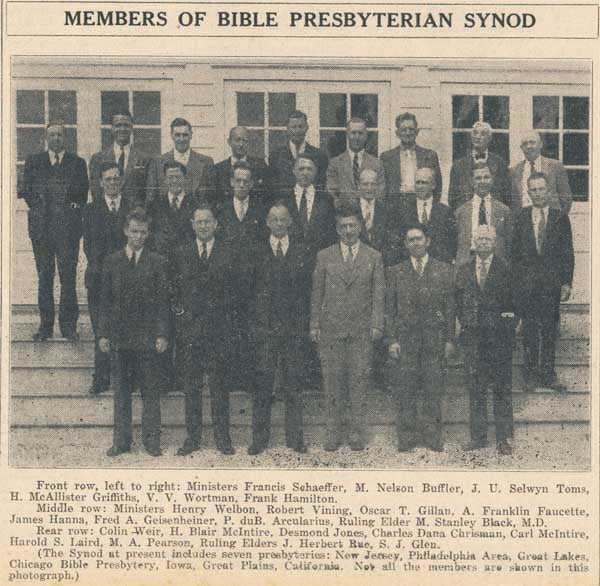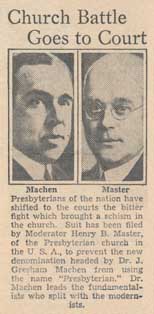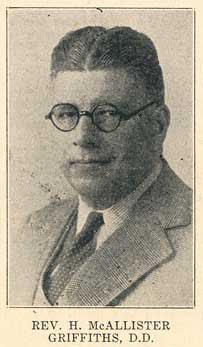The first General Synod of the Bible Presbyterian Church Meets
They said that the Presbyterian Church of America which began in 1936 had been “a false start.” Issues regarding the exact details associated with Christ’s second coming as well as the total abstention from alcoholic beverages formed a divisive wedge between once united brothers in Christ. The place of independent agencies in the new church versus denomination agencies added another issue to the contention of “a false start” in the Presbyterian Church of America. Some would even argue that the death of J. Gresham Machen was a blow to the original testimony. But whatever it was, in 1937, a small group of ministers and ruling elders had gathered in another place from the General Assembly then meeting to set up the rules for association for a new church.

And now, beginning September 6, 1938, and continuing two more days, thirty-nine teaching elders and eleven ruling elders met at the new tabernacle building of the Collingswood Bible Presbyterian Church, in Collingswood, New Jersey. The name of this new church had been taken from the name of the congregation pastored by the Rev. David K. Myers, a home missionary of the Presbyterian Church of America in Lemmon, South Dakota. That constituted the first Bible Presbyterian Church in the nation. The other churches were represented by seven presbyteries: New Jersey, Great Plains, Philadelphia, Great Lakes, Chicago Bible, Iowa, and California. In its beginning days, it would have a glorious testimony to the Word of God and the testimony of Jesus Christ.
Some of its original ministers were individuals who had and would have a testimony in present and future years. They were: Francis A Schaeffer, H. McAllister Griffiths, Carl McIntire, Harold S Laird, Oliver Buswell, Allan MacRae, Charles Dana Chrisman, A. Franklyn Faucette, J. A Toms, and others. J. A Toms was elected moderator, and H. McAllister Griffiths was elected the Stated Clerk. Those who had suffered censure in various degrees by the Presbyterian Church in the U.S.A. were absolved of all such censure.
Two of the original resolutions passed by this new church were the exact two which were issues in the Presbyterian Church of America. The church was decidedly placed in the premillennial camp by adding parenthesis to the Confessions Standards. Further, the call for holiness and specifically a call for total abstinence from alcoholic beverages was passed by the new church.
Even though they were classified as independent agencies, both the Independent Board for Foreign Missions and Faith Theological Seminary were endorsed by the new denomination.
Words to live by: There is always joy over the birth of something new, especially a church body. But to have individuals who had stood the test of orthodoxy in an increasing liberal church find out that they cannot agree with one another on other issues is disheartening. The issue of the doctrine of the last things was not premillennialism per se. It was dispensational premillennialism. The issue of holiness of life and total abstinence from alcohol was an issue in the days of prohibition, but to this writer it was not a reason to separate from brothers in the Lord. Westminster Seminary put out a directive right around this time which enjoined its students from alcohol, citing a witness to the world and that of offending brothers in Christ. But there is encouragement even in small blessings, for just a few years ago, modern Bible Presbyterians approved a motion in granting observer status to the Orthodox Presbyterian Church. There are blessings to brothers who dwell together in liberty.



